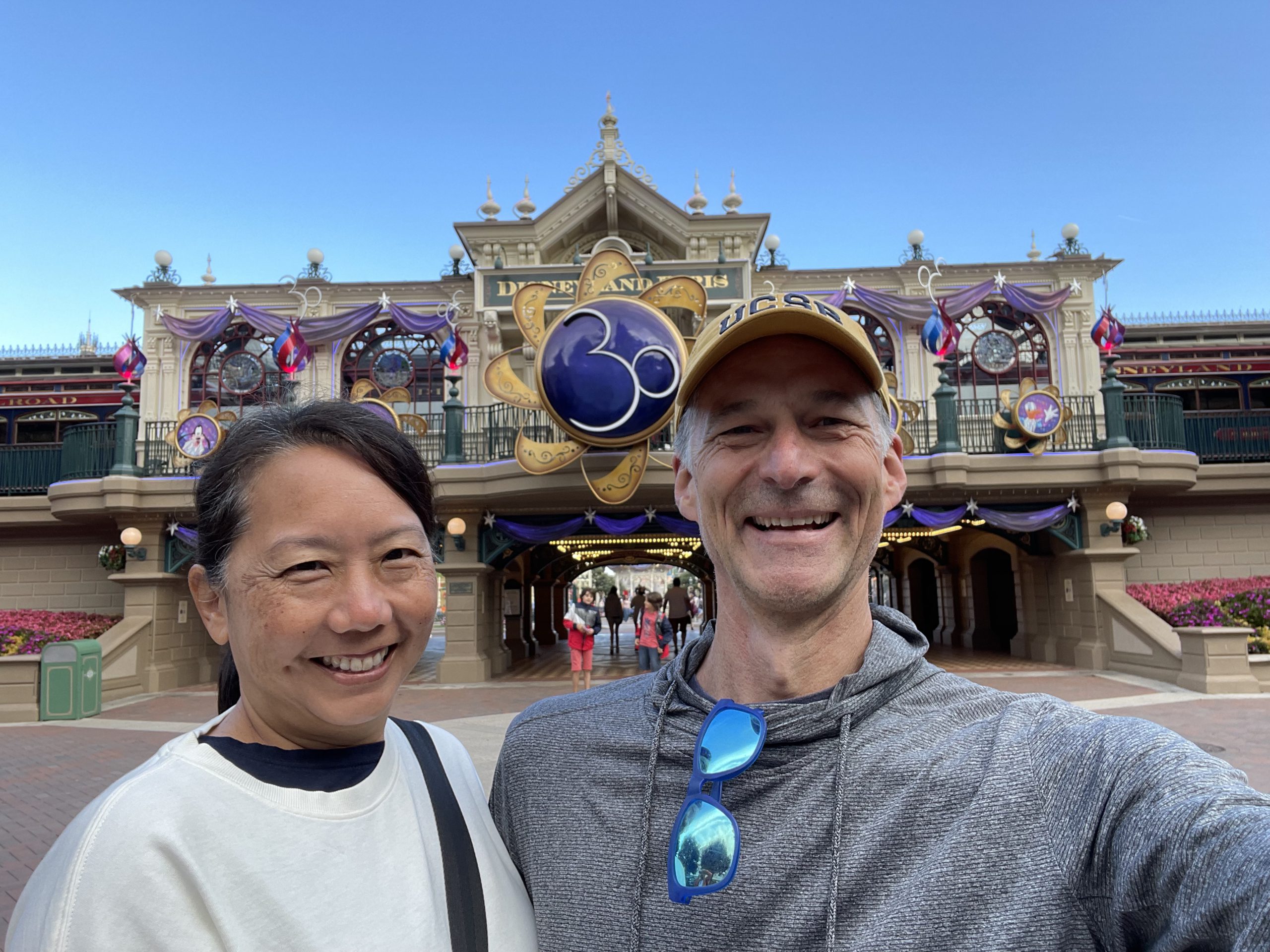By Kathy Engle and Monique Binkley Smith, Vitals contributors
Oakland resident Brian Jeffs was doing the right thing when he scheduled his first colonoscopy in late 2020. He had delayed the procedure about a year due to his busy work schedule and the pandemic, but since he wasn’t experiencing any symptoms, he anticipated a normal screening.
“I went in with the mindset of just getting it over with and getting back to my normal routine, thinking this is just a necessary evil of turning 50,” Jeffs recalls. “But instead, everything quickly turned upside down for a full year.”
During the colonoscopy, the doctor found a stage 3 colorectal cancer. A stage 3, or locally advanced cancer, means the cancer is larger and may have spread to the surrounding tissue and/or the lymph nodes but has not been found elsewhere in the body.
Jeffs began radiation in February 2021, followed by surgery in May and chemotherapy in July. According to Jeffs, daily radiation sessions set the tone for compassionate and coordinated care that continued throughout his treatment.
At every level, Jeffs and his wife Kari felt supported, he says. “It really felt like the team put maximum effort into devising a treatment plan quickly—but it was so much more than treatment. Everyone really showed compassion, asking me how I was doing every day in radiation and pulling in others right away if anything needed attention.”
Pandemic Delays Many Cancer Screenings
The past three years have seen a decline in routine cancer screenings nationwide, driven largely by the COVID-19 pandemic. But now physicians are pleading for patients to return to routine care and get their recommended cancer screenings –including colonoscopies, prostate checks, skin checks, Pap tests for cervical cancer, and mammograms.

Dr. Srivana Chennupati is a radiation oncologist at Sutter Health’s Alta Bates Summit Comprehensive Cancer Center
Physicians who specialize in cancer diagnosis and treatment, such as those affiliated with the Sutter Health not-for-profit network of healthcare in Northern California, are urging people to get cancer screenings when they are eligible and to partner with their primary care physicians to keep up with recommended screening intervals. Delaying a cancer screening can mean a developing cancer remains undetected for a while and the result is people may reduce their odds of a successful outcome once the cancer is eventually found.
According to the National Institute of Health, colorectal cancer is the fourth most common cancer after breast, prostate and lung cancers. However, it is also one of the most treatable when found early. Last year, the U.S. Preventives Services Task Force lowered the recommended age for colonoscopy from 50 to 45 because of a rise in colorectal cancer cases among young and middle-aged people.
Dr. Sravana K. Chennupati, Jeffs’ radiation oncologist who practices at Sutter’s Alta Bates Summit Comprehensive Cancer Center in Berkeley says, “Early detection saves lives because we’re able to begin treatment sooner. The earlier a cancer is detected, the greater a person’s chance for a cure, the better their chance for a good quality of life and the longer they can live.”
Recent data suggest 12% of all colorectal cancer patients are now under the age of 50. It’s a startling trend that, in 2021, prompted the U.S. Preventive Services Task Force to recommend colorectal cancer screenings with colonoscopy for individuals starting at age 45 instead of 50.
Since the implementation of the new guidelines, Sutter Health has successfully screened more patients for colorectal cancers than in years past – helping aid early interventions for effective treatment.
With more than 2,000 new diagnoses each year, Alta Bates Summit is one of the largest providers of cancer care in the Bay Area, offering advanced diagnostic and treatment technologies along with supportive services for patients throughout their cancer journey.

Colon Cancer survivor Brian Jeffs and his wife Kari in London.
For patients like Jeffs who need radiation therapy, cancer specialists at Alta Bates Summit use the latest linear accelerator technology, along with leading-edge imaging tools. In 2021, Alta Bates Summit installed a 4D Wide Bore CT Simulator, made possible with philanthropic gifts from the community. This advanced technology enables more targeted radiation treatments while reducing procedure time and slashing radiation exposure by up to 70% for patients and caregivers.
Jeffs reports his scans to date have been clear, and he and his family are grateful he’s on the mend.
“Kari and I were so impressed with the care I received—the entire care team was truly remarkable,” Jeffs says.
Note: This content is not intended to be a substitute for professional medical advice, diagnosis or treatment. Always seek the advice of your physician or other qualified health provider with any questions you may have regarding a medical condition. Never disregard professional medical advice or delay in seeking it because of something you have read on this website.





